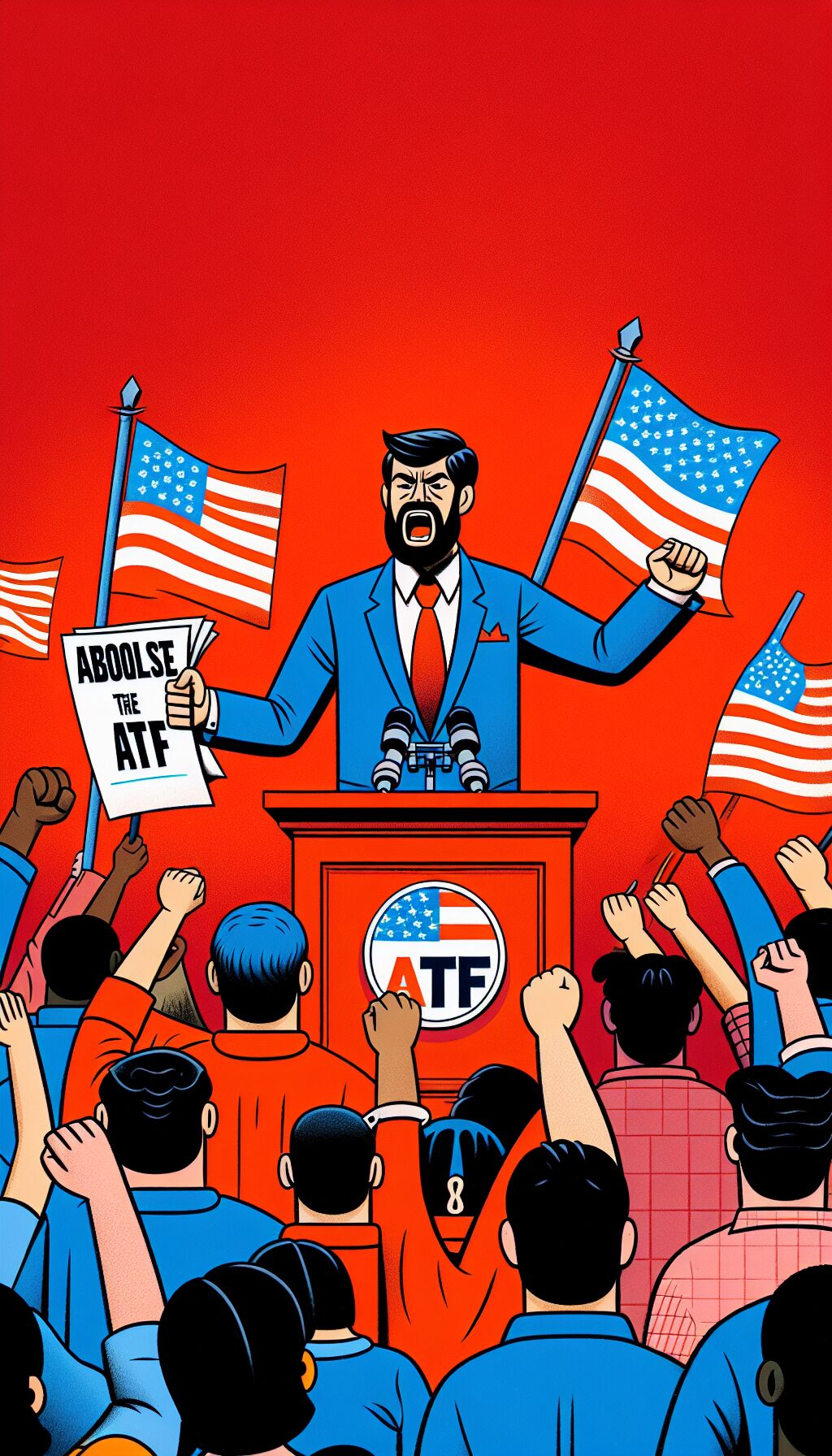Rep. Eric Burlison’s Bold Move to Abolish the ATF
Rep. Eric Burlison, R-Mo., a freshman lawmaker with strong ties to the conservative House Freedom Caucus, is making headlines with his intention to abolish the Bureau of Alcohol, Tobacco, Firearms and Explosives (ATF). In a statement made to Fox News Digital, Burlison criticized the agency as a “disaster” that has increasingly overstepped its boundaries.
ATF: A Disaster in the Eyes of Conservatives
“The ATF is a disaster,” Burlison declared, underscoring his belief that the agency has long been a source of contention. He emphasized his view that for decades, the ATF has failed to uphold the rights enshrined in the Second Amendment. Burlison’s remarks are part of a broader Republican critique of federal agencies, especially those perceived to infringe on personal freedoms.
Arguing for a more localized approach, Burlison contended that states should have the autonomy to manage their own affairs without federal interference. He expressed concern over what he sees as the agency’s reliance on local law enforcement to enforce federal laws that lack state approval: “There’s very few ATF officials,” he noted, “and they have been co-opting or commandeering local law enforcement to enforce laws that state lawmakers did not pass.”
A Call to Action: The Proposal Ahead
Burlison plans to introduce a measure aimed at dismantling the ATF, building on the groundwork laid by then-Rep. Matt Gaetz, R-Fla., who proposed a similar initiative in 2023. As a cosponsor of Gaetz’s earlier measure, Burlison is poised to garner support from like-minded lawmakers.
A number of prominent GOP representatives have expressed their support for the initiative, including Lauren Boebert of Colorado, Paul Gosar of Arizona, and Mary Miller of Illinois, among others. Their backing reflects a growing sentiment within the Republican Party that the ATF’s role is not only unnecessary but detrimental to the constitutional rights of Americans.
Burlison’s move comes amid a larger political climate where calls for government accountability are intensifying, especially regarding agencies that affect personal liberties and state governance.
ATF’s Response and the Debate Ahead
In response to the criticisms, the ATF defended its existence and operations. ATF spokesperson Kristina Mastropasqua reached out to Fox News Digital, stating, “ATF provides enormous benefits to the American public through all of its efforts fighting violent crime every day.” This statement reflects the agency’s stance that its work is vital for public safety and crime prevention.
The debate over the ATF’s future is anticipated to escalate, with Burlison’s proposal potentially igniting discussions in Congress. As the conversation unfolds, observers will be watching closely to see how this measure impacts both legislative dynamics and public discourse around gun rights and federal authority.
Broader Aspirations: Other Agencies on the Chopping Block
Interestingly, Burlison’s ambitions do not end with the ATF. He has also voiced opinions on the need to abolish other federal agencies, including the Department of Education and the Environmental Protection Agency (EPA). His rationale for targeting these agencies lies in his belief that they impose restrictive regulations that do more harm than good.
“The EPA is making one-size-fits-all rules for the entire United States,” Burlison argued, asserting that such regulations hinder rather than help the states. This position aligns with a growing sentiment among some in the GOP that federal overreach is stifling local governance and individual freedoms.
Conclusion: A Pivotal Moment for Federal Oversight
As Rep. Eric Burlison prepares to unveil his proposal to abolish the ATF, the political landscape surrounding gun rights and federal oversight remains as polarized as ever. His call to dismantle the agency is not merely an isolated incident but part of a broader narrative among conservatives advocating for a reevaluation of federal authority.
The outcomes of this initiative could have far-reaching implications not only for the ATF’s operations but also for how federal agencies interact with local governments and citizens’ rights. As lawmakers navigate these complex issues, the battle over the ATF’s future is likely to serve as a litmus test for the current ideological divides within American politics.










